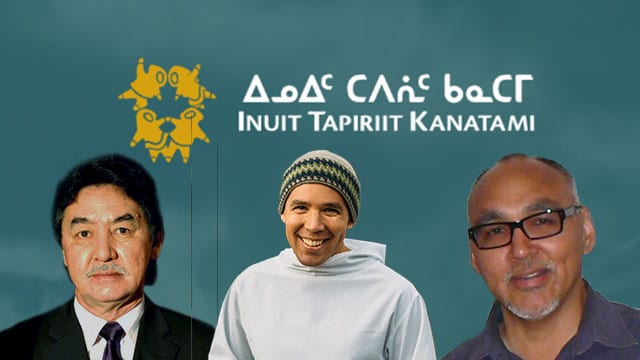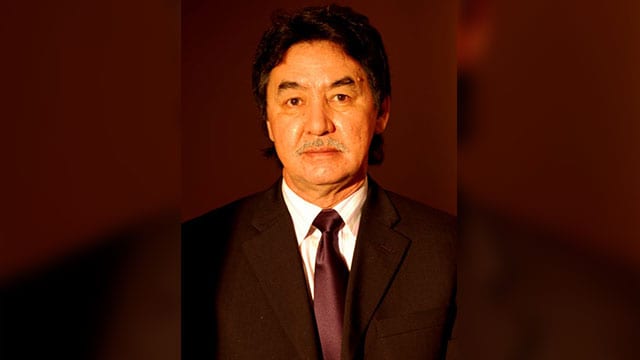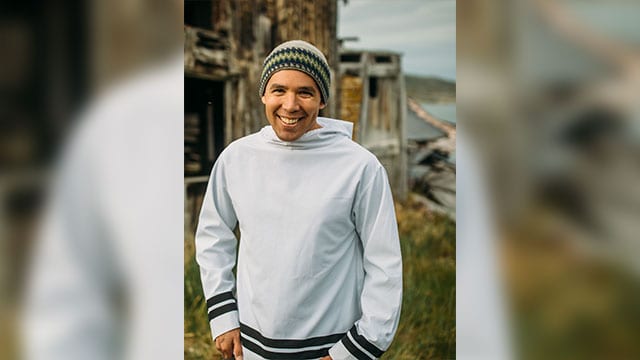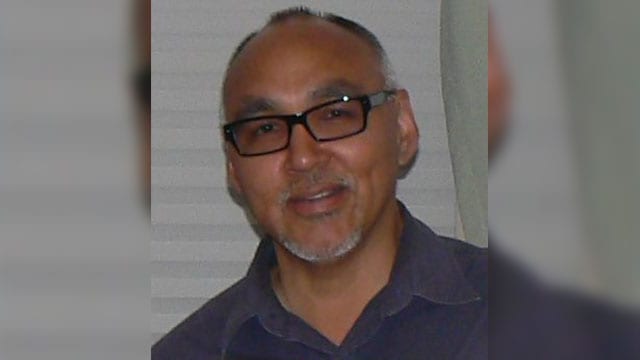
Two candidates are vying to unseat Natan Obed as president of the Inuit Tapiriit Kanatami (ITK) in an election August 16.
Former Inuk MP Peter Ittinuar and policy analyst Peter Williamson are running against Obed, who been president of the ITK for the past three years.
The ITK represents 65,000 people living in the Inuit Nunangat, the term for the Inuit homeland stretching across 53 communities in four regions: Nunavut, Nunavik (northern Quebec), Nunatsiavut (northern Labrador) and Inuvialuit (the northwest part of the Northwest Territories).
Like the Assembly of First Nations (AFN), the population ITK represents will not get to vote for the national president.
That decision lies with the ITK board.
So why does this election matter?
For the first time this year, the ITK will have more say in how federal dollars are spent on Inuit initiatives and Prime Minister Justin Trudeau has pledged a lot of money for the North.
More than $500 million in this year’s federal budget has been earmarked for Inuit-related initiatives over five to 10 years. That’s on top of the $240 million announced in 2017 to support housing in Nunavut over that same time period.
And still, the region is plagued with problems ranging from over-crowded housing to staggeringly-high rates of suicide and tuberculosis.
APTN News spoke with each candidate ahead of the election, which will be held in Inuvik, Inuvialuit Settlement Region following the ITK’s annual general meeting.
Peter Ittinuar
Ittinuar was elected as the first Inuk member of Parliament in 1979, representing Nunatsiaq for the New Democrats. In 1982, he crossed the floor to join then-prime minister Pierre Trudeau’s Liberal Party. He has also served as the executive director for the ITK and is currently a negotiator for the Ontario government’s Ministry of Indigenous Relations.
From Chesterfield Inlet, NWT, Ittinuar was one of three “Experimental Eskimos.” He’s currently embroiled in a decade-long legal battle with the federal government for recognition.
Ittinuar says the ITK should be “democratized” and vows to at least study the option of allowing every member a vote in future elections. That used to be the norm, he said.
“I heard an elder in Repulse Bay say, ‘We don’t own ITK anymore,’” he said.
When it comes to overcrowded housing, Ittinuar is frank.
“If you don’t family plan, don’t have 10 kids. If you don’t get your kids up to school, then don’t have kids,” he said, while admitting this could be an unpopular opinion.
He said the “easiest solution” for the housing crisis is more funding, but that he doesn’t really have an answer.
“Maybe we need a royal commission on housing. It is such a prominent issue in the North,” he said.
Unlike Obed and Williamson, Ittinuar also speaks fluent Inuktitut.
If elected, he said he will be better suited to communicate with those unilingual members of the Inuit Nunangat.
Natan Obed
Obed is touting the ITK’s accomplishments from his first term as president, including a national Inuit suicide prevention strategy, a plan to help aggressively cut down on the tuberculosis rate in the North and a new Inuit-Crown partnership committee.
But he said there’s more work to be done.
“We are working extremely closely with our Inuit regions and with the federal government on an ambitious agenda,” he said. “We are in the midst of that agenda, I feel that the work that I had hoped to do as ITK president has not been completed.”
He said the ITK is also in the midst of creating a national housing strategy, which will address Inuit homelessness.
“The amount of money that we have leveraged from the federal government to provide housing in Inuit Nunagat over these past three years is not going to solve this problem of homelessness and overcrowding, but it starts us in the right direction,” he said.
At 42 years old, Obed is once again the youngest candidate in the running for ITK president (Ittinuar is 68 years old and Williamson is 55).
Originally from Nain, Nunatsiavut, Obed spent his teenage years in the United States. While not fluent in Inuktitut, Obed said he’s a conversational speaker.
Obed splits his time between Ottawa and Iqaluit, Nunavut where his wife and two sons live.
Peter Williamson
The housing crisis is top of mind for Williamson, who calls it a “human rights” issue for the Inuit Nunangat.
“It also affects education, it affects employment, it affects health and mental health and all of these issues Inuit are having real problems in,” he said.
“It’s not just a housing issue.”
To solve the housing crisis, Williamson said the federal government must first recognize the problem as a human rights issue. Hundreds of millions of dollars in federal funding is not the answer, he said.
“It’s not enough to meet peoples’ needs. It’s just a Band-Aid solution.”
If elected, he would also advocate for changes to the welfare system that would allow Inuit to seek funding specifically for hunting equipment so they can provide food for their families.
Williamson also said he believes the ITK should extend the presidential vote to everyone living in the Inuit Nunangat (Obed is the only candidate who demurred on this question, saying he does not make the governance rules. He also raised concerns about a disconnect between a nationally elected president and the four regional presidents).
Williamson is currently enrolled in Royal Roads University in Victoria, B.C. where he’s working on a Bachelor of Commerce in entrepreneurial management.












